Islamic universities occupy a distinctive niche in the global landscape of higher education, seamlessly blending rigorous academic pursuits with a profound commitment to spiritual, ethical, and social responsibilities rooted in Islamic teachings. Far beyond their role as centers for producing scholars, researchers, and professionals, these institutions serve as dynamic hubs for community service and social justice, addressing pressing local and global challenges through the guiding principles of compassion, equity, and collective responsibility. By anchoring their initiatives in core Islamic values such as zakat (obligatory charity), sadaqah (voluntary giving), adalah (justice), and rahmah (mercy), Islamic universities empower students, faculty, and surrounding communities to drive transformative change. This article delves deeply into the multifaceted ways Islamic universities champion community service and social justice, exploring their diverse initiatives, far-reaching impacts, historical context, and alignment with the timeless ethos of Islam.
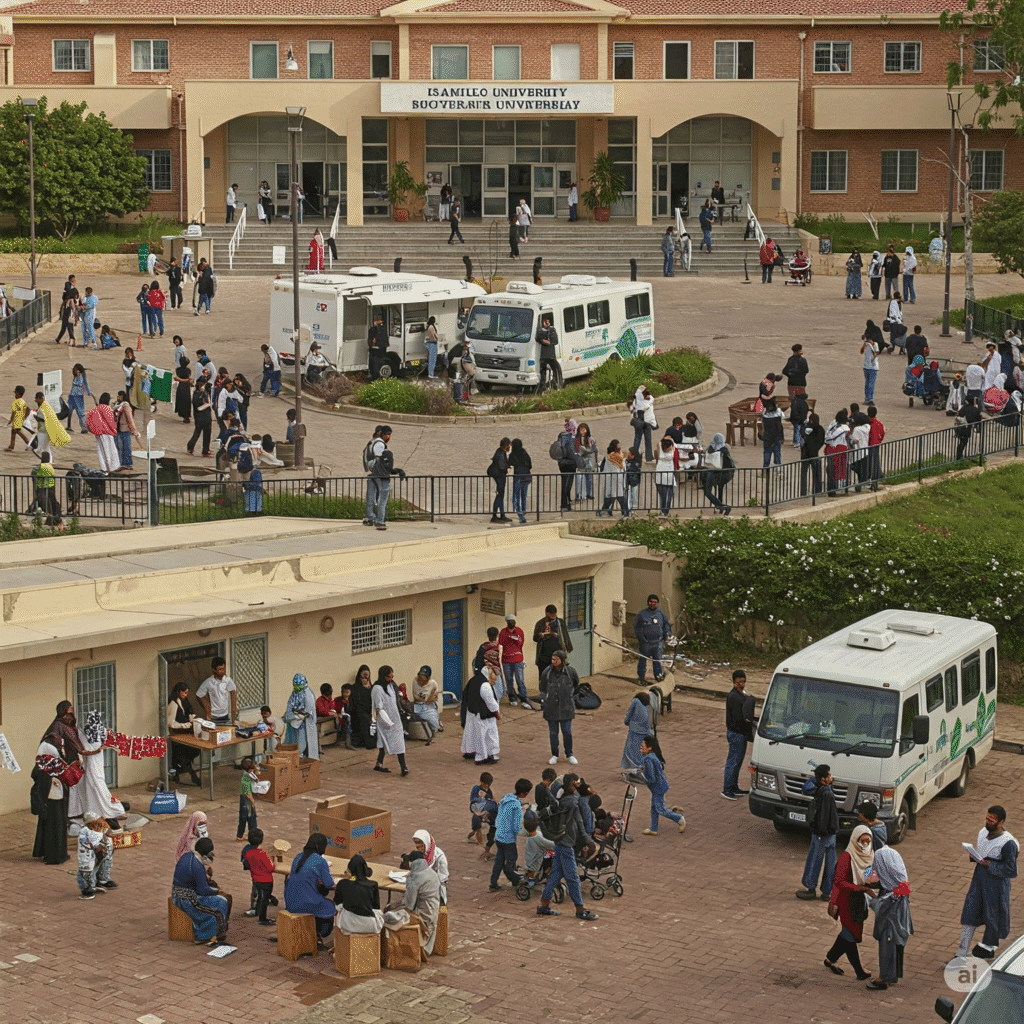
The Islamic Imperative for Community Service and Social Justice
At the heart of Islam lies a profound call to serve humanity and uphold justice, principles that are deeply embedded in the Qur’an and the Sunnah (traditions of the Prophet Muhammad, peace be upon him). The Qur’an urges believers to “enjoin what is right and forbid what is wrong” (Qur’an 3:104) and to “compete in doing good” (Qur’an 2:148). The Prophet Muhammad emphasized the value of service, stating, “The best of people are those who are most beneficial to others” (Hadith, Sahih al-Bukhari). These teachings form the moral and spiritual foundation of Islamic universities’ commitment to community engagement and social justice.
Unlike many secular institutions where community service might be an optional or peripheral activity, Islamic universities view these efforts as intrinsic to their mission. This perspective reflects the holistic Islamic worldview, which integrates knowledge (ilm), action (amal), and ethical conduct (akhlaq). Community service, in this context, encompasses a broad spectrum of activities, from immediate charitable acts to long-term sustainable development projects. Social justice, meanwhile, involves tackling systemic inequalities—such as poverty, gender disparities, racial discrimination, and lack of access to education—while advocating for fairness, dignity, and inclusion for all. Guided by these principles, Islamic universities design programs that bridge theoretical learning with practical application, encouraging students to translate their education into tangible contributions to society.
Historical Context: A Legacy of Service
The role of Islamic universities as hubs for community service and social justice is not a modern phenomenon but a continuation of a rich historical legacy. From the establishment of the University of Al-Qarawiyyin in Fez, Morocco, in 859 CE—often regarded as the world’s oldest university—to the flourishing of institutions like Al-Azhar in Cairo, Islamic centers of learning have long served as beacons of knowledge and compassion. These early institutions provided free education to the poor, distributed food and clothing, and offered medical care, embodying the Islamic principle of ihsan (excellence in serving others). Scholars from these centers often acted as mediators in disputes, advisors to rulers, and advocates for the marginalized, ensuring that justice permeated societal structures.
Today’s Islamic universities build upon this legacy, adapting to contemporary challenges while preserving their commitment to service and justice. By drawing on historical models, they create modern frameworks for community engagement that resonate with both Islamic values and global development goals, such as the United Nations’ Sustainable Development Goals (SDGs).
Key Initiatives in Community Service
Islamic universities worldwide implement a wide array of community service initiatives, each tailored to address the specific needs of their local contexts while maintaining a universal commitment to Islamic ethics. Below are some of the most impactful areas of focus, illustrated with examples from leading institutions:
1. Educational Outreach and Literacy Programs
Education is a cornerstone of empowerment, and Islamic universities prioritize extending educational opportunities to underserved populations. The International Islamic University Malaysia (IIUM) exemplifies this commitment through its “Sejahtera Community” program, which organizes free tutoring and mentorship for underprivileged children in Kuala Lumpur’s urban slums. These initiatives not only improve literacy and academic performance but also instill hope and ambition in young learners, breaking cycles of poverty. Similarly, Al-Azhar University in Egypt operates mobile literacy units that travel to rural villages, offering adult education classes in reading, writing, and basic arithmetic. These programs particularly target women, enabling them to gain skills that enhance their economic independence and social standing.
In Indonesia, the Universitas Islam Indonesia (UII) has launched community-based learning centers that provide vocational training in fields like tailoring, computer literacy, and agriculture. By equipping individuals with practical skills, these centers foster self-reliance and contribute to local economies, aligning with the Islamic principle “‘The upper hand is better than the lower hand’” (Hadith, Sahih Muslim).
2. Healthcare and Humanitarian Aid
Healthcare outreach is a vital component of Islamic universities’ community service efforts, reflecting the Prophetic emphasis on caring for the sick. The Islamic University in Uganda (IUIU) organizes regular mobile medical camps in rural areas, providing free consultations, vaccinations, and maternal health services. These camps, staffed by medical students and faculty, also include health education workshops on topics like hygiene, nutrition, and disease prevention, empowering communities to take charge of their well-being.
During crises, such as natural disasters, pandemics, or conflicts, Islamic universities often serve as first responders. For instance, during the 2020 COVID-19 pandemic, the Islamic University of Gaza mobilized student volunteers to distribute food parcels, masks, and sanitizers to families in refugee camps. Such efforts embody the Islamic value of rahmah (mercy), ensuring that aid reaches the most vulnerable. Similarly, the University of Jordan’s medical faculty partnered with local NGOs to provide mental health support to Syrian refugees, addressing the often-overlooked psychological toll of displacement.
3. Environmental Stewardship
The Islamic concept of khalifah (stewardship of the Earth) inspires Islamic universities to champion environmental sustainability. The University of Sharjah in the UAE has integrated environmental ethics into its Islamic studies and engineering curricula, encouraging students to lead initiatives like campus recycling programs, water conservation campaigns, and urban gardening projects. These efforts not only address ecological challenges but also cultivate a sense of collective responsibility among students.
In Pakistan, the International Islamic University in Islamabad has partnered with environmental organizations to launch reforestation drives, planting thousands of trees in deforested areas. Student-led campaigns also raise awareness about climate change, linking environmental care to Islamic teachings, such as the Hadith: “If the Hour (Day of Judgment) is about to be established and one of you is holding a sapling, let him plant it” (Musnad Ahmad). By framing environmentalism as a religious duty, these universities inspire sustainable practices that resonate deeply with their communities.
4. Charity and Economic Empowerment
Islamic universities often manage zakat and sadaqah funds to support the poor and promote economic empowerment. The Islamic University of Madinah, for example, operates a microfinance program that provides interest-free loans to small entrepreneurs, such as women running home-based businesses or farmers seeking to expand their operations. These loans, structured in accordance with Islamic finance principles, help individuals achieve financial independence without the burden of exploitative interest rates.
In Nigeria, the Bayero University Kano’s Islamic studies department runs a zakat distribution program that provides food, clothing, and school supplies to low-income families during Ramadan and Eid. Beyond immediate relief, the program includes workshops on financial literacy, teaching families how to budget and save effectively. These initiatives reflect the Qur’anic injunction to “spend of the good things which you have earned” (Qur’an 2:267) and demonstrate how charity can be a catalyst for long-term empowerment.
Advancing Social Justice Through Education and Advocacy
Social justice is a central pillar of Islamic universities’ missions, as they strive to dismantle systemic inequalities and advocate for the marginalized. Their efforts in this area are multifaceted, addressing issues such as gender equity, human rights, and social cohesion through education, research, and activism.
1. Promoting Gender Equity
Islamic universities play a pivotal role in advancing women’s rights within an Islamic framework, challenging misconceptions that Islam and gender equality are incompatible. The International Islamic University in Islamabad offers scholarships, mentorship programs, and leadership training specifically for female students, enabling them to pursue careers in fields like medicine, law, and technology. The university’s women’s campus provides a safe and inclusive environment, fostering academic excellence and personal growth.
In Saudi Arabia, Princess Nourah bint Abdulrahman University, the world’s largest women’s university, has pioneered initiatives to empower female graduates. Its career development center connects students with internships and job opportunities, while its entrepreneurship hub supports women launching startups. By equipping women with education and skills, these universities uphold the Islamic principle of equality, as exemplified by the Prophet’s recognition of women’s contributions to society, such as Khadijah (may Allah be pleased with her), a successful businesswoman.
2. Legal Aid and Human Rights
Many Islamic universities have established legal aid clinics to support vulnerable populations, particularly in regions affected by conflict or poverty. Al-Quds University in Palestine, for instance, operates a legal aid clinic that provides pro bono services to refugees, helping them resolve issues like land disputes, labor violations, and access to social services. The clinic also trains law students in ethical legal practice, instilling a commitment to haqq (truth and justice).
In Malaysia, the Universiti Sains Islam Malaysia (USIM) has launched a human rights advocacy program that educates communities about their legal rights, particularly in areas like domestic violence and workplace discrimination. By combining legal expertise with Islamic ethics, these programs empower individuals to seek justice while fostering a culture of accountability.
3. Interfaith and Social Cohesion
In increasingly diverse societies, Islamic universities promote social cohesion by fostering interfaith dialogue and mutual respect. The University of Sharjah hosts annual interfaith forums where students from Muslim, Christian, and other religious backgrounds collaborate on community projects, such as food drives for migrant workers or literacy campaigns for low-income families. These initiatives counter division and build bridges, reflecting the Islamic value of ta’aruf (mutual understanding), as highlighted in the Qur’an: “O mankind, We created you from a single pair… so that you may know one another” (Qur’an 49:13).
In India, Aligarh Muslim University (AMU) has a long history of promoting unity in a diverse society. Its student-led interfaith clubs organize cultural exchanges and joint service projects, fostering harmony in a region often marked by religious tensions. By modeling inclusive practices, these universities demonstrate how faith-based institutions can lead in building cohesive societies.
Student-Led Movements and Volunteerism
Students are the driving force behind many of Islamic universities’ community service and social justice initiatives. Through student organizations, volunteer groups, and extracurricular activities, they channel their passion and creativity into impactful projects. Examples include:
Orphan Sponsorship Programs: At Qatar University, the Islamic Studies Club has raised funds to sponsor orphans in conflict zones like Syria and Yemen, providing them with education, healthcare, and emotional support. These programs not only meet immediate needs but also create lasting bonds between students and the children they support.
Advocacy Campaigns: Students at the Islamic University of Gaza have organized social media campaigns to highlight the struggles of displaced families in Gaza, amplifying their voices on global platforms. These efforts combine activism with storytelling, raising awareness and inspiring action.
Skill-Building Workshops: At the University of Indonesia, students in the Islamic studies faculty conduct workshops teaching skills like coding, graphic design, and entrepreneurship to youth in underserved areas. By sharing their expertise, they empower others to pursue economic opportunities and contribute to their communities.
These student-led initiatives cultivate leadership, empathy, and a sense of purpose, preparing young people to become conscientious global citizens. They also demonstrate the power of youth in driving social change, as encouraged by the Qur’anic call to “stand up for justice” (Qur’an 4:135).
Challenges and Opportunities
Despite their remarkable contributions, Islamic universities face significant challenges in scaling their community service and social justice efforts. Limited funding is a persistent issue, particularly for institutions in developing countries where resources are scarce. Bureaucratic hurdles, such as restrictive government policies or complex administrative processes, can also hinder program implementation. In regions affected by political instability or conflict, universities must navigate security risks to deliver aid and services.
Moreover, balancing academic rigor with community engagement requires careful resource allocation. Faculty and students often juggle teaching, research, and service commitments, which can strain time and energy. Ensuring that community programs are sustainable—rather than one-off events—also demands strategic planning and long-term investment.
However, these challenges present opportunities for innovation and collaboration. Partnerships with NGOs, governments, and international organizations can amplify impact. For example, Al-Azhar University’s collaboration with UNICEF has expanded its educational outreach to refugee communities in Egypt, providing resources and expertise that the university alone could not muster. Technology also offers new possibilities, such as online platforms for fundraising, virtual training for volunteers, or digital literacy programs for remote communities.
Islamic universities can also leverage their global networks to share best practices and resources. The Association of Islamic Universities, which connects institutions across Asia, Africa, and the Middle East, facilitates knowledge exchange and joint projects, enabling universities to learn from one another’s successes and challenges.
The Global Impact of Islamic Universities
The influence of Islamic universities extends far beyond their immediate communities, shaping societies and contributing to global development. By training graduates who carry the values of service and justice into their careers, these institutions produce leaders who make a difference in diverse fields. Alumni of Islamic universities often lead NGOs, advise governments, launch social enterprises, or advocate for policy changes, applying their education to address issues like poverty, education access, gender equality, and climate change.
For example, graduates of the Islamic University of Technology in Bangladesh have founded tech startups that provide affordable solar energy to rural communities, aligning innovation with social impact. Similarly, alumni of Al-Azhar University have played key roles in international peacebuilding efforts, mediating conflicts in regions like Sudan and Yemen.
Islamic universities also contribute to global discourse on social justice through research and thought leadership. The International Institute of Islamic Thought (IIIT), affiliated with several universities, publishes studies on topics like economic inequality, human rights, and environmental ethics from an Islamic perspective. Conferences hosted by institutions like the University of Malaya bring together scholars, policymakers, and activists to discuss solutions to global challenges, positioning Islamic universities as intellectual leaders in ethical governance and sustainable development.
Aligning with Global Development Goals
The community service and social justice initiatives of Islamic universities align closely with the United Nations’ Sustainable Development Goals (SDGs), which aim to address global challenges like poverty, inequality, and climate change by 2030. For instance:
SDG 4 (Quality Education): Literacy programs and scholarships expand access to education.
SDG 3 (Good Health and Well-Being): Medical camps and mental health services improve community health.
SDG 5 (Gender Equality): Women’s empowerment programs promote equity and inclusion.
SDG 13 (Climate Action): Environmental initiatives address ecological challenges.
SDG 1 (No Poverty): Microfinance and charity programs alleviate economic hardship.
By framing their work in the context of these global goals, Islamic universities demonstrate their relevance to contemporary development challenges while remaining grounded in Islamic values.
Conclusion
Islamic universities are far more than academic institutions; they are vibrant ecosystems of compassion, justice, and transformation. By weaving community service and social justice into their core mission, they uphold the Islamic mandate to serve humanity while addressing the complex challenges of the modern world. Through educational outreach, healthcare, environmental stewardship, economic empowerment, and advocacy, these universities empower communities, inspire students, and shape a more equitable future.
Their work is a testament to the enduring relevance of Islamic principles in fostering social good, from the historical legacy of Al-Qarawiyyin and Al-Azhar to the innovative programs of today’s institutions. As they navigate challenges and seize opportunities, Islamic universities will continue to lead by example, proving that faith, knowledge, and action can converge to create lasting change.
Call to Action: Inspired by the impact of Islamic universities? Get involved by volunteering with their community programs, supporting their initiatives through donations, or advocating for their work in your networks. Together, we can amplify their efforts to build a more just and compassionate world.
Must read:
- Simple and Easy Duas for Beginners to Strengthen Faith and Spiritual Connection
- The Hidden Benefits of Fasting in Ramadan That No One Talks About Until Now!
- How to Memorize Quran Faster During Ramadan 2025
Frequently Asked Questions (FAQs)
What makes Islamic universities different from other universities in their approach to community service?
Islamic universities integrate community service into their core mission, guided by Islamic values like charity (zakat), mercy (rahmah), and justice (adalah). Unlike many secular institutions, service is not optional but a fundamental part of their identity, reflecting a holistic approach that combines knowledge, action, and ethics.
How do Islamic universities fund their community service programs?
Funding comes from various sources, including zakat and sadaqah contributions, university budgets, government grants, and partnerships with NGOs and international organizations like UNICEF. Some programs also rely on student-led fundraising and alumni donations.
Can non-Muslims participate in the community service initiatives of Islamic universities?
Yes, many Islamic universities welcome non-Muslims to participate in their initiatives, especially in interfaith projects, healthcare camps, and environmental campaigns. These programs aim to serve all humanity, regardless of faith, in line with the Islamic principle of universal compassion.
How do Islamic universities ensure their social justice efforts align with Islamic teachings?
They design programs based on Qur’anic principles and the Sunnah, often consulting Islamic scholars to ensure compliance with Shariah. For example, microfinance programs avoid interest (riba), and gender equity initiatives are framed within Islamic guidelines on equality and dignity.
What role do students play in these initiatives?
Students are central, leading volunteer groups, organizing campaigns, and implementing projects like literacy workshops, medical camps, and advocacy drives. These activities help them develop leadership, empathy, and a commitment to social change.
How do Islamic universities address global issues like climate change?
They incorporate environmental ethics into curricula, promote sustainable practices (e.g., recycling, reforestation), and link these efforts to the Islamic concept of khalifah (stewardship). Universities like the University of Sharjah lead campaigns to raise awareness and drive action.
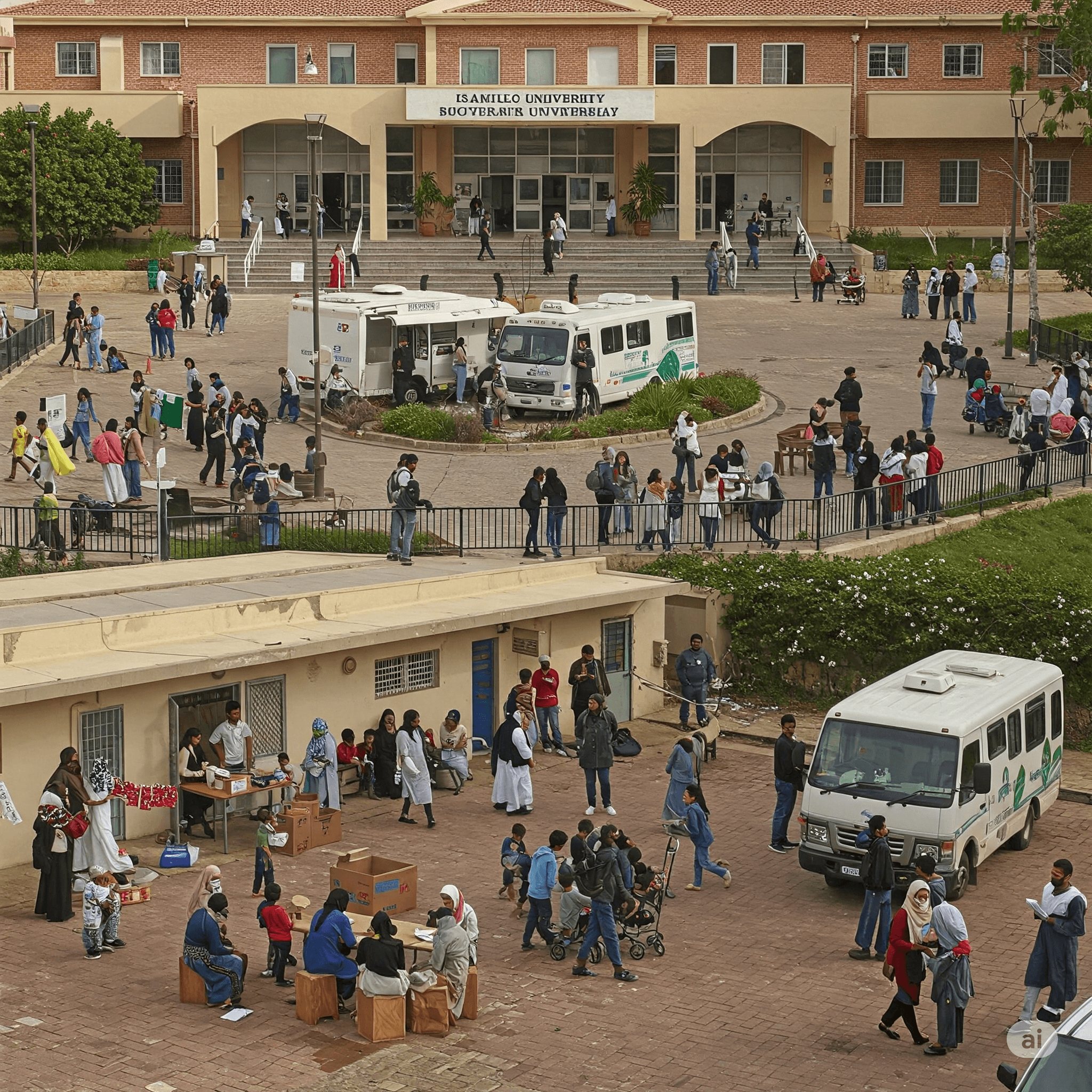
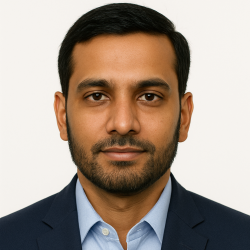
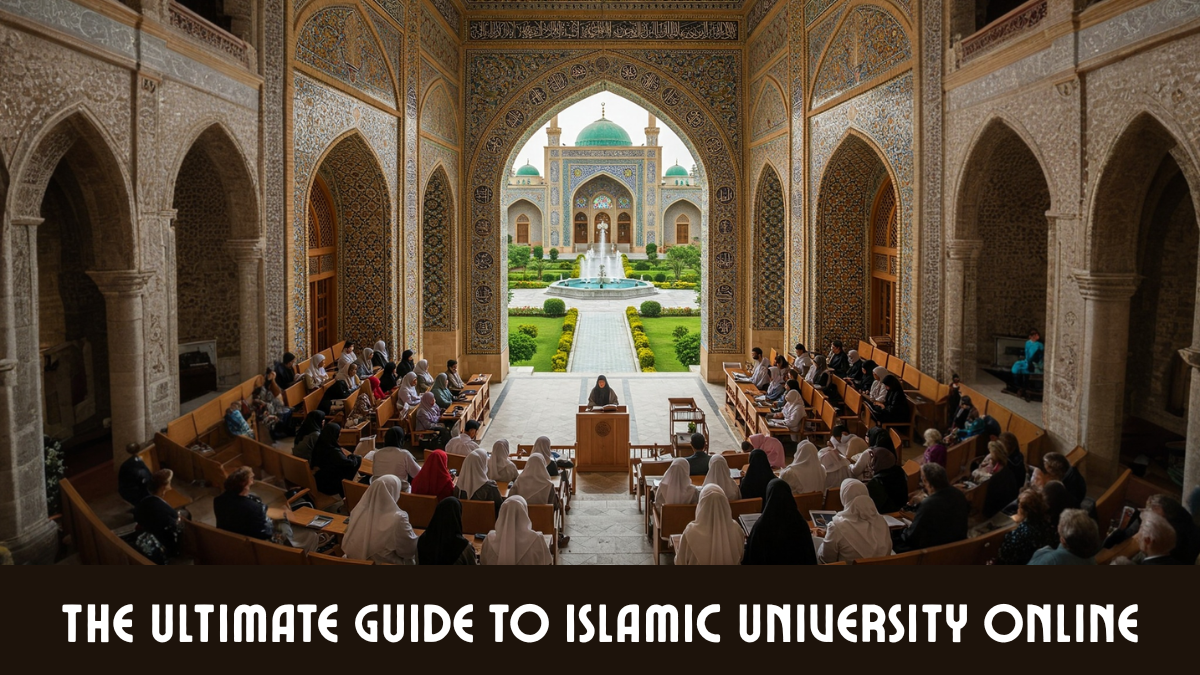
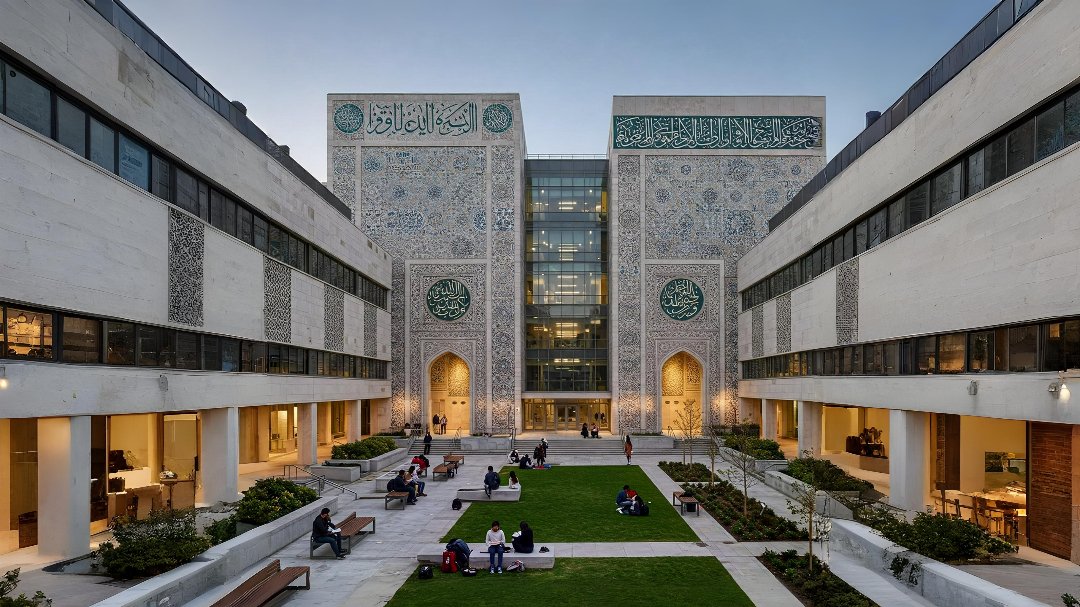









Post Comment